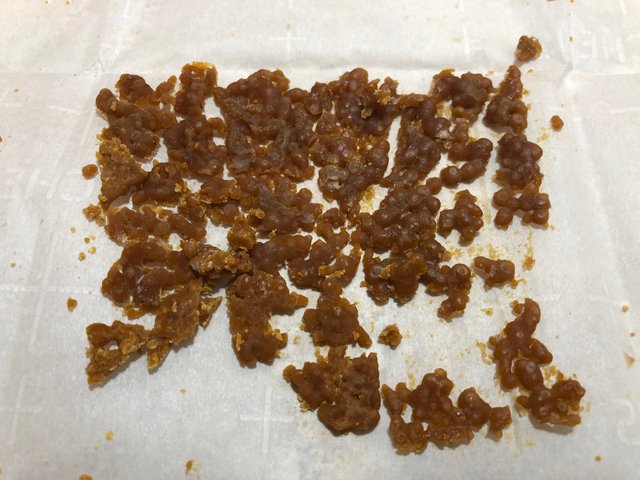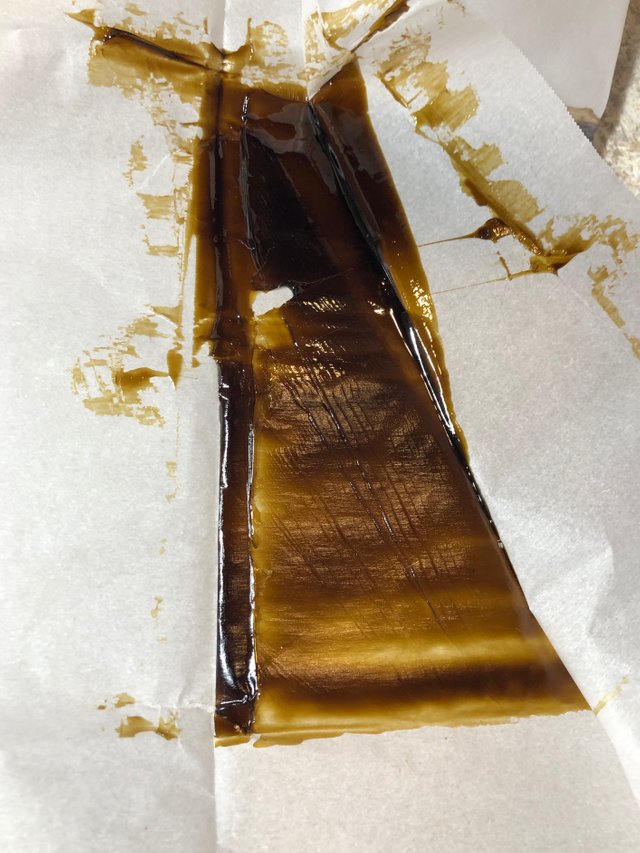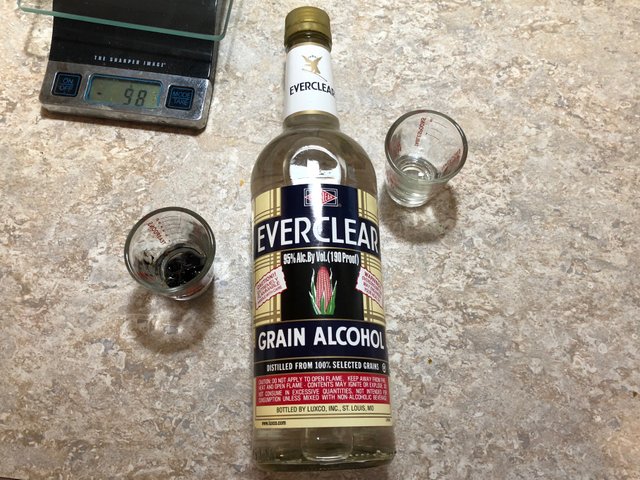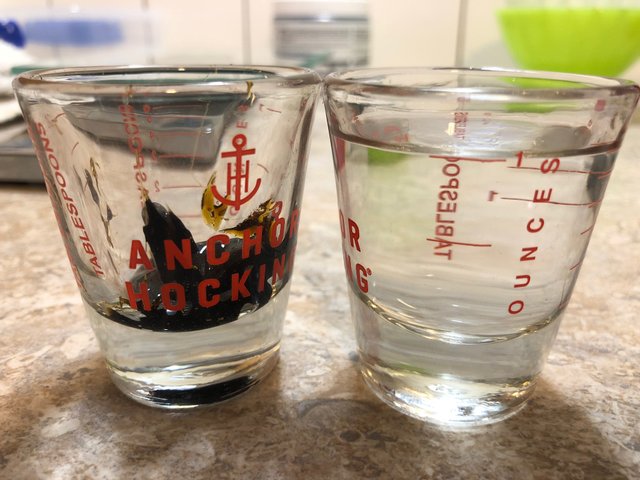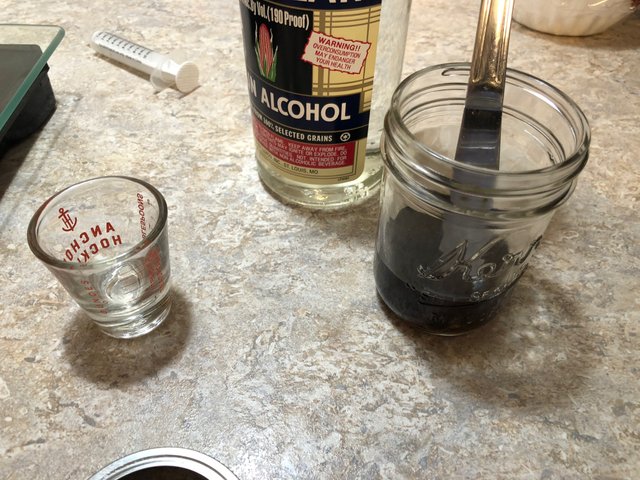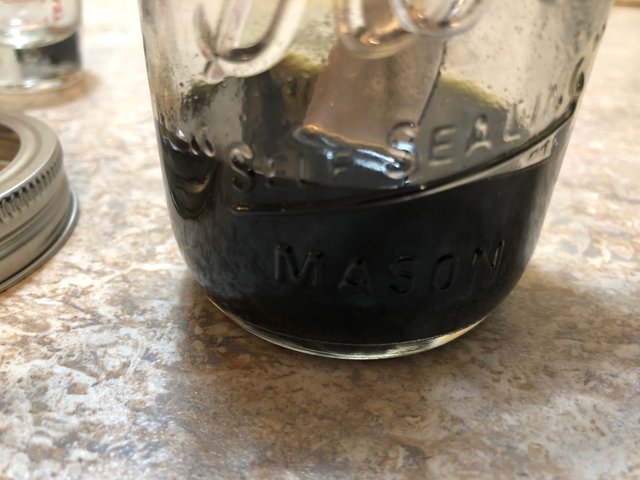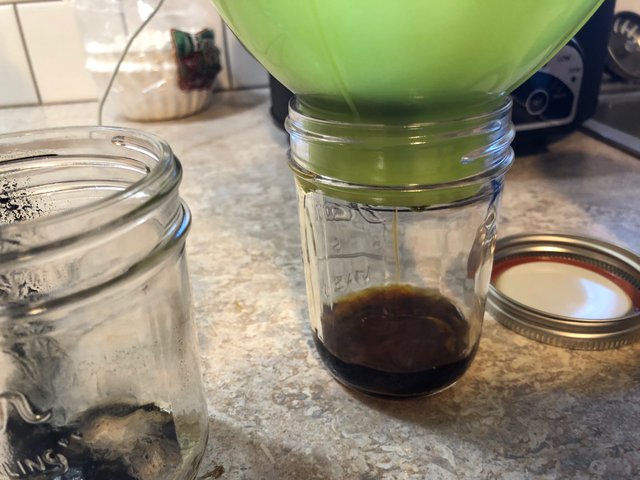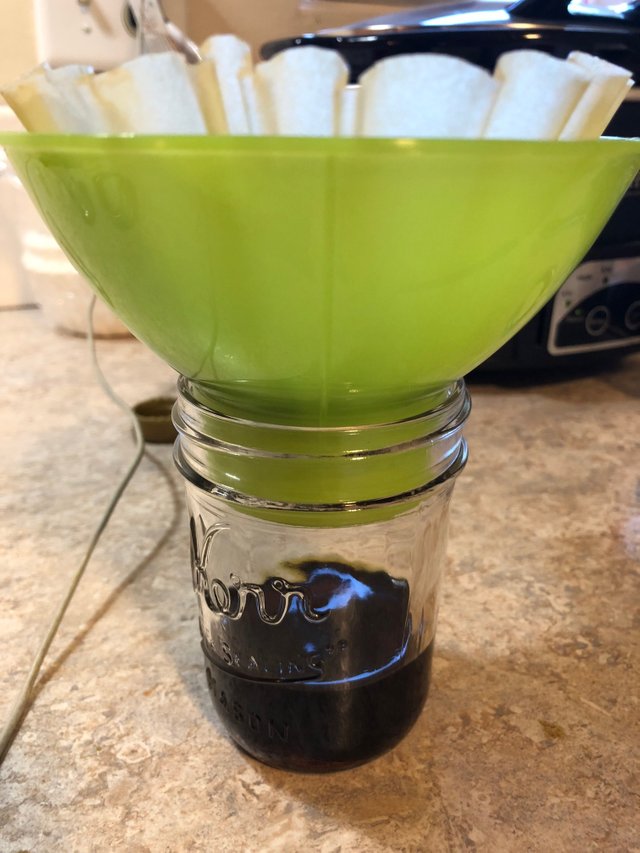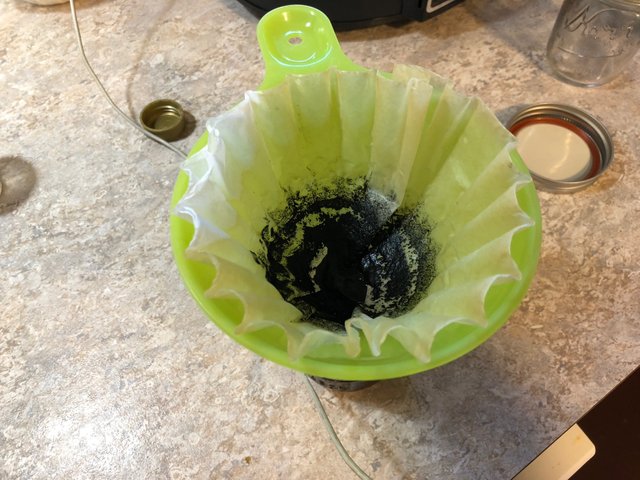Cannabis - Experiment #1 to Remove Dark Color From Extract.
Here are different samples of cannabis extract. The cannabis material was “trim” which was the left-over material from trimming the bud. The process that was used is the “open loop” butane blasting. The cannabis material was put into a stainless tube with a screen on one side and a diffuser cap on the other side. Cans of butane were sprayed through the diffuser to soak the cannabis material and drained out the other side into a pan. After the majority of the butane has boiled off, that pan was then put into a vacuum oven to remove the remainder of the butane. The problem is that there is no consistency with this process. The employees would never run each batch the same way. The amount of butane used was never consistent either.
Here is an example of the extract resulting in a crumbly consistency.
Here is some successful “shatter” but the product is extremely dark.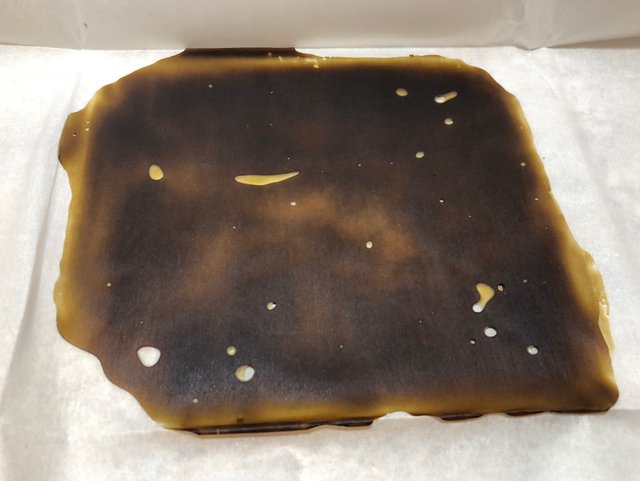
This is the worst product which resulted in a tar-like consistency that never hardened. I suspect that this one was heated for too long converting the THCA to THC. My theory is that the reduction of THCA doesn’t allow the extract to harden.
While waiting on funding and a decision on a proper closed loop extraction system, I decided to experiment with the extract to improve color.

Regardless of THC concentration, the public wants the light golden honey color product. Our dark extract is a result of chlorophyll and other compounds being absorbed in the butane extraction process. I had a theory that activated charcoal could bind to those compounds and remove the dark color. The experiment could also absorb THCA or THC, which would be bad. Since the extract that we have can’t be sold, I might as well experiment with it to attempt to salvage it. So here is the experiment.
I started with the tar-like material with the end goal of loading vape pen cartridges. In this experiment, I used some alcohol to thin the extract to make it very watery. The alcohol will be removed later. I started with 5 grams of the extract and added 2 ounces of alcohol. Once all the extract was dissolved, I added ¼ teaspoon of activated charcoal and mixed thoroughly. I then poured the mix through coffee filters to remove the activated charcoal. The result was not good. The material was just as dark as what I started with.
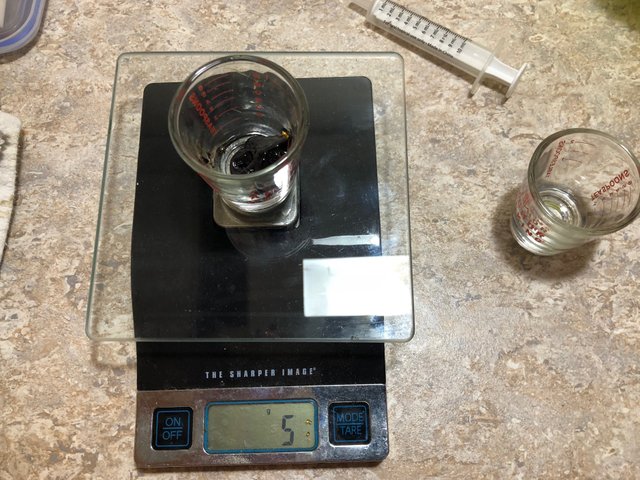
It could be that there wasn’t enough activated charcoal to do the job. I repeated the charcoal process with a teaspoon instead of ¼ teaspoon. The result after passing through the filter was the same. Either the charcoal is not effective enough or the charcoal itself has darkened the product. I have a vacuum filtration kit on order and will attempt to recreate the experiment with fine filter paper.
